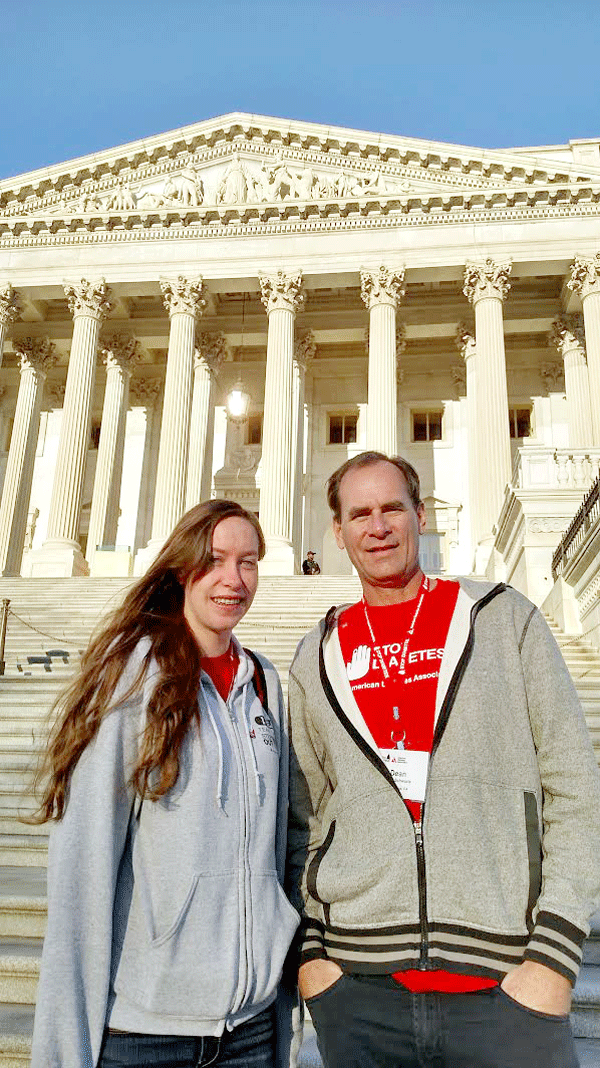
Scotts Valley High School Junior Alannah Schwartz, flew to Washington DC last week to attend the American Diabetes Association’s annual premier national advocacy event, Call to Congress.
From March 11 to 13, nearly 200 ADA volunteer advocates from around the country joined together to urge Congress to fund research that would help stop diabetes. Children and adults with diabetes, as well as health care professionals and researchers were among the participants.
Alannah was diagnosed with Type 1 diabetes a year ago, and heard about the event and opportunity to become a volunteer advocate through a walk/run fundraiser called Step Out, which raises money for the ADA. Alannah’s father Dean Schwartz, who was diagnosed with Type 2 diabetes three years ago, attended the event with his daughter.
“It’s all about money for research, trying to convince them (Congress) to support us in research for better meds, cheaper meds, a cure, why it happens, all that sort of stuff,” Dean said. “So we are going in there strictly to ask for money for research.”
In September, Alannah received an email asking if she would like to apply for the Call to Congress event. She wrote an essay, submitted the application and was accepted.
“I think it will be very beneficial for people to understand diabetes more and understand that it is a serious disease and that it should not be overlooked like it normally is,” Alannah said.
Alannah said that her life has changed significantly since she was diagnosed with Type 1 diabetes.
“I have to check my blood sugar and give myself a shot every time I eat and so that’s changed, and obviously it’s been a big deal,” she said. “I’ve had to change the way I eat and the way I manage my health because I have to make sure that my body is healthy and does what it needs to do.”
The disease has changed the way the rest of the family eats, too, Dean said. He has to eat less carb-rich foods, while Alannah can mostly eat whatever she wants as long as she counts her carbs and gives herself the right amount of insulin.
“Watching your daughter in a restaurant giving herself insulin with a needle while everyone is watching is kind of hard,” Dean said. “It took some adjusting.”
There is no history of diabetes in the Schwartz family, yet somehow both Dean and Alannah have been diagnosed.
“That’s why we want more research to find out what’s going on, what causes it, why it is random,” Dean said.
Together the group attended advocacy meetings and then went to Capitol Hill on Thursday, where they spent most the day talking with representatives of congress.
“(Congress) can definitely help us get funding for research so we can figure out together how (diabetes) happens and how to prevent it, or to find a cure,” Alannah said.











